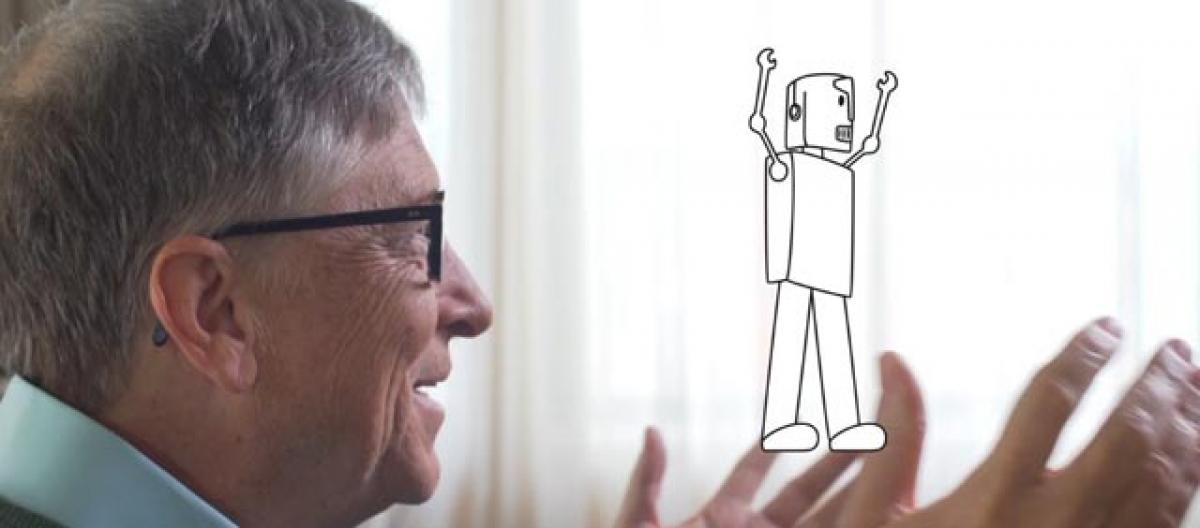Job-stealing robots should pay income tax: Bill Gates

Robots are taking human jobs. But Bill Gates believes that governments should tax companies’ use of them, as a way to at least temporarily slow the spread of automation and to fund other types of employment.
Robots are taking human jobs. But Bill Gates believes that governments should tax companies’ use of them, as a way to at least temporarily slow the spread of automation and to fund other types of employment.
It’s a striking position from the world’s richest man and a self-described techno-optimist who co-founded Microsoft, one of the leading players in artificial-intelligence technology.
In a recent interview, Gates said that a robot tax could finance jobs taking care of elderly people or working with kids in schools, for which needs are unmet and to which humans are particularly well suited.
He argues that governments must oversee such programmes rather than relying on businesses, in order to redirect the jobs to help people with lower incomes. The idea is not totally theoretical: EU lawmakers considered a proposal to tax robot owners to pay for training for workers who lose their jobs, though the legislators ultimately rejected it.
“You ought to be willing to raise the tax level and even slow down the speed” of automation, Gates argues. That’s because the technology and business cases for replacing humans in a wide range of jobs are arriving simultaneously, and it’s important to be able to manage that displacement.
“You cross the threshold of job replacement of certain activities all sort of at once,” Gates says, citing warehouse work and driving as some of the job categories that in the next 20 years will have robots doing them.
What do you think of a robot tax? This is the idea that in order to generate funds for training of workers, in areas such as manufacturing, who are displaced by automation, one concrete thing that governments could do is tax the installation of a robot in a factory, for example.
Bill Gates: Certainly there will be taxes that relate to automation.
Right now, the human worker who does, say, $50,000 worth of work in a factory, that income is taxed and you get income tax, social security tax, all those things. If a robot comes in to do the same thing, you’d think that we’d tax the robot at a similar level.
And what the world wants is to take this opportunity to make all the goods and services we have today, and free up labour, let us do a better job of reaching out to the elderly, having smaller class sizes, helping kids with special needs. You know, all of those are things where human empathy and understanding are still very, very unique. And we still deal with an immense shortage of people to help out there.
So if you can take the labour that used to do the thing automation replaces, and financially and training-wise and fulfillment-wise have that person go off and do these other things, then you’re net ahead. But you can’t just give up that income tax, because that’s part of how you’ve been funding that level of human workers. And so you could introduce a tax on robots… (Courtesy: Quartz)








